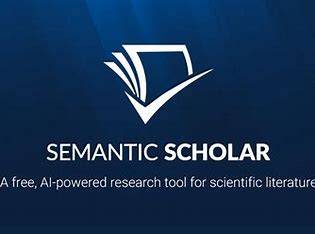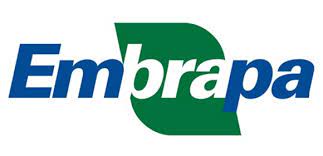THE USE OF TECHNOLOGY AS A TEACHING-LEARNING SUPPORT
DOI:
https://doi.org/10.47820/recima21.v4i8.3793Keywords:
basic education has become a topic that goes beyond beingAbstract
The introduction of information and communication technologies in basic education has become a subject that starts from an innovative resource, becoming an issue that reaffirms the objectives of education updated in society. Given this current precision, this article aims to examine the issues on the insertion of Information and Communication Technologies in basic education. For this purpose, it made use of theories from several authors in order to collaborate for a reflection in broader spheres. And the objectives permeate in distinguishing the importance of Information and Communication Technologies (ICT) in the development of teaching-learning among teachers, within the scope of innovative teaching in basic education. The research method is qualitative/descriptive, it is configured, in terms of the function, of the changes resulting from the use of information and communication technologies. In view of this, we signal that the study starts from renowned authors with the purpose of ascertaining the perception regarding the precision of the use of ICT in the classroom environment. The results show that many teachers have difficulties in using technology to expand teaching, which highlights the need for continuing education for teachers looking forward to an effective connection of technology in the educational context.
Downloads
References
Aguiar, W. M. J. (2001). A pesquisa em psicologia sócio-histórica: contribuições para o debate metodológico. Psicologia sócio-histórica: uma perspectiva crítica em psicologia, 3, 129-140.
Berrocal, V., & Fallas, I. (2012). Trabajo colaborativo docente en ambientes de aprendizaje mediados por tecnología. In J. S. Ribeiro & M. L. L. Aires (Eds.), Investigação e variantes curriculares no ensino online: Desafios da interculturalidade na era tecnológica (pp. 84–101). Porto, Portugal: CERIM, Universidade Aberta. Retrieved from https://repositorioaberto.uab.pt/bitstream/10400.2/2196/1/ebook_interativo_investiga%C3%A7%C3%A3o e variantes.pdf
Boavida, A. M., & Ponte, J. P. (2002). Investigação colaborativa: Potencialidades e problemas. In GTI (Ed.), Reflectir e investigar sobre a prática profissional (pp. 43–55). Lisboa, Portugal: APM. Retrieved from http://repositorio.ul.pt/bitstream/10451/4069/1/02-Boavida-Ponte %28GTI%29.pdf
Bolstad, C. A., & Endsley, M. R. (2003). Tools for supporting team collaboration. In Proceedings of the Human Factors and Ergonomics Society 47th Annual Meeting (Vol. 47, pp. 374–378). http://doi.org/10.1177/154193120304700326
Bower, M. (2016). Deriving a typology of Web 2.0 learning technologies. British Journal of Educational Technology, 47(4), 763–777. http://doi.org/10.1111/bjet.12344
Carrapiço, F; Estrada, Francisco J. P; Miranda, F.de P. R. Professores do ensino básico: características socioprofissionais, formação em TIC e efeitos na sua prática (Algarve-Portugal). Campus Virtual, v. 11, não. 2 p. 9-20, 2022.
Castells, M. (1999). A sociedade em rede. (R. V. Majer & K. B. Gerhardt, Eds.) (8a ed.). Paz e Terra. Retrieved from http://www.agecin.com.br/ftp/web/CASTELLS, Manuel. A sociedade em rede - vol. I.pdf
Coutinho, C., & Lisbôa, E. (2011). Sociedade da informação, do conhecimento e da aprendizagem: Desafios para educação no século XXI. Revista de Educação, XVIII(1), 5–22. Retrieved from https://repositorium.sdum.uminho.pt/bitstream/1822/14854/1/Revista_Educa%C3%A7%C3%A3o,VolXVIII,n%C2%BA1_5-22.pdf.
Kenski, V. M. (2007). Educação e tecnologias: O novo ritmo da informação. Campinas: Papirus.
Meirinhos, M., & Osório, A. (2010). O estudo de caso como estratégia de investigação em educação. EduSer: Revista de Educação, 2, 49–65. Retrieved from https://bibliotecadigital.ipb.pt/handle/10198/3961
Meirinhos, M., & Osório, A. J. (2014). A colaboração em ambientes virtuais: Aprender e formar no século XXI. Braga, Portugal: Associação ArcaComum. Retrieved from https://www.researchgate.net/publication/314100632_A_Colaboracao_em_Ambientes_Virtuais_aprender_e_formar_no_seculo_XXI.
Santos, A. dos. (2015). Tecnologias de informação e comunicação: Limites e possibilidades no ensino superior. Revista Brasileira de Ensino Superior, 1(1), 36–46. Retrieved from https://seer.imed.edu.br/index.php/REBES/article/viewFile/839/630.
Santos, R. M. R. dos, Melim, A. P., & Paniago, M. C. L. (2017). Formação continuada de professores universitários na rede social facebook: Interagir, trocar, dialogar, compartilhar, aprender e conviver. Interações, 18(2), 13–20. http://doi.org/10.20435/inter.v18i2.1502
Takahashi, T. (Ed.). (2000). Sociedade da informação no Brasil: Livro verde. Brasília, Brasil: Ministério da Ciência e Tecnologia. Retrieved from http://livros01.livrosgratis.com.br/ci000005.pdf
Downloads
Published
How to Cite
License
Copyright (c) 2023 RECIMA21 - Revista Científica Multidisciplinar - ISSN 2675-6218

This work is licensed under a Creative Commons Attribution 4.0 International License.
Os direitos autorais dos artigos/resenhas/TCCs publicados pertecem à revista RECIMA21, e seguem o padrão Creative Commons (CC BY 4.0), permitindo a cópia ou reprodução, desde que cite a fonte e respeite os direitos dos autores e contenham menção aos mesmos nos créditos. Toda e qualquer obra publicada na revista, seu conteúdo é de responsabilidade dos autores, cabendo a RECIMA21 apenas ser o veículo de divulgação, seguindo os padrões nacionais e internacionais de publicação.

 Clique para ver detalhes
Clique para ver detalhes 











